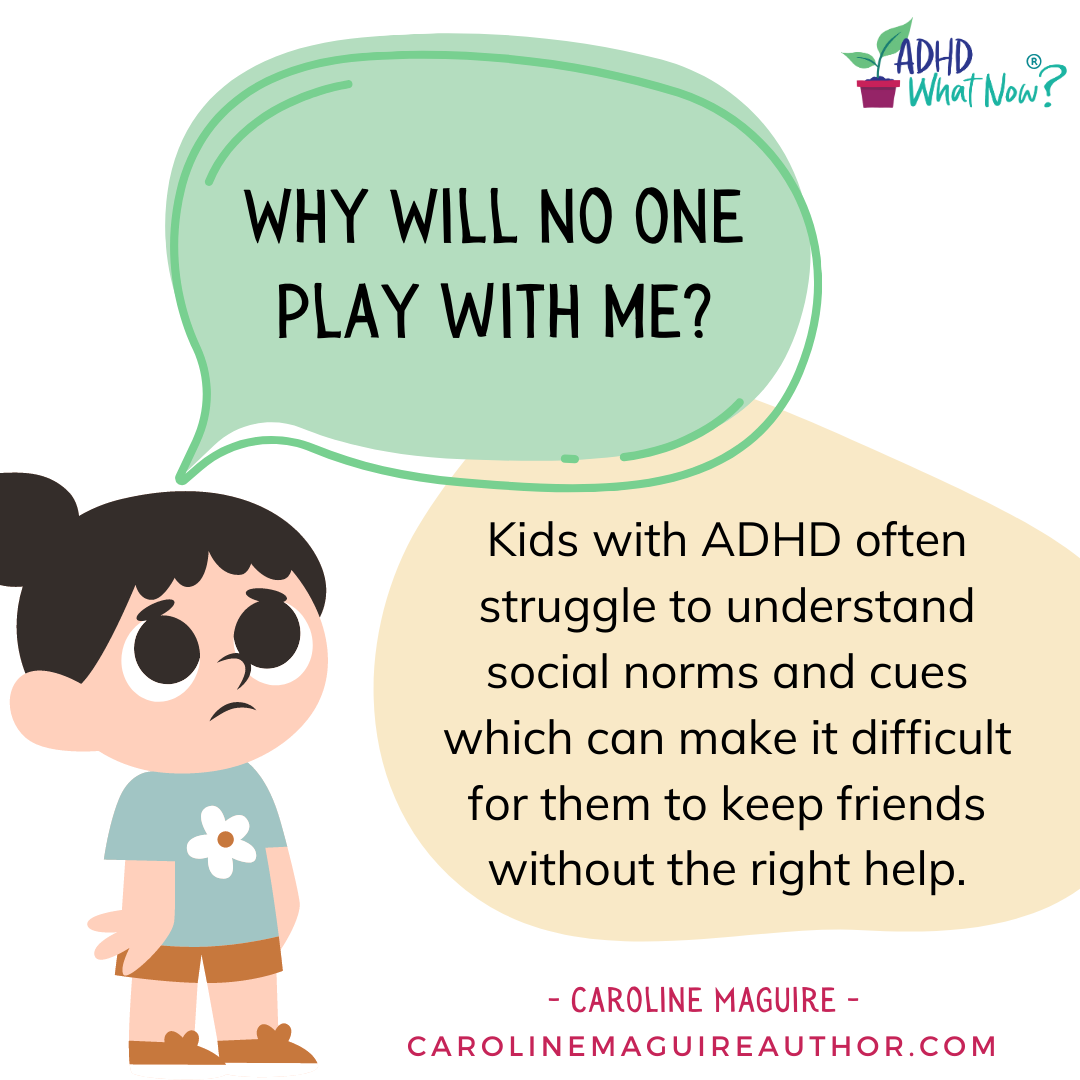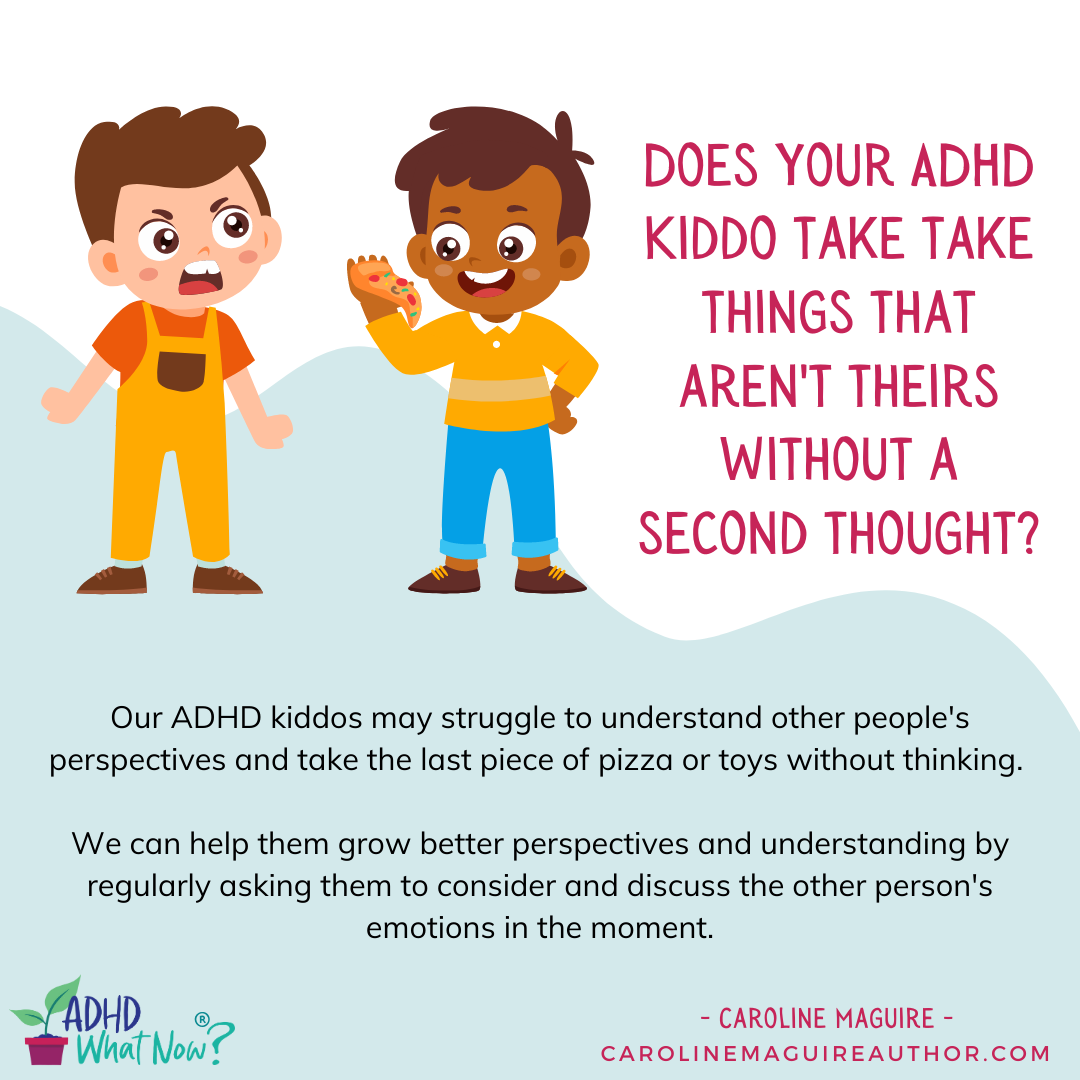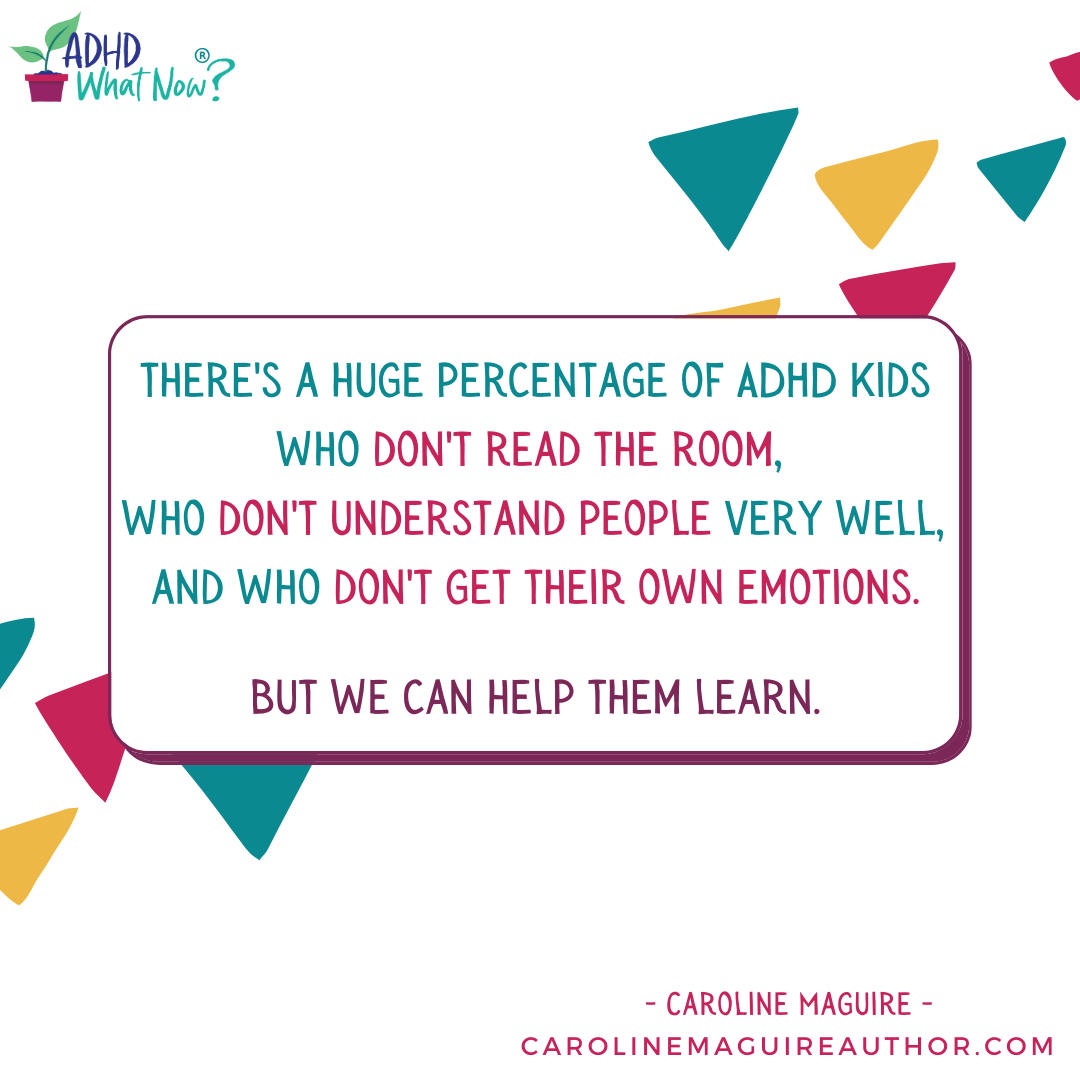Helping Your ADHD Kid Understand Social Situations
Apr 18, 2023Are you a parent of a child with ADHD struggling to navigate the complex world of social skills?
Look no further than my talk with Caroline Maguire, a social skills expert. Caroline has over 15 years of experience in working with kids and adults with ADHD who have social struggles.
In this video, she shares practical insights and strategies for supporting kids and parents on this journey. Caroline's goal is to provide helpful advice to parents, and she knows that kids with ADHD can struggle to understand people and different points of view.
Remember, everyone's brain works differently and we need to find the right tools for your unique kiddo. Caroline shares some of her tools like practicing being a social spy and reinforcing proper social etiquette within family culture to have successful communication and relationships.
LINKS
Caroline's website: https://carolinemaguireauthor.com/
SHAREABLE GRAPHICS




FULL TRANSCRIPT
Veronica: Does your kiddo with ADHD seem a little bit socially awkward?
I know you want what is best for them, and you might be really worried about this area because you want them to have thriving relationships, but it seems like a little bit more than just interrupting in the middle of a game. It seems like sometimes perhaps they don't understand the other person's perspective and so their response isn't quite on point.
My name's Veronica Hunter, I'm the founder of ADHD -What Now? Where we're on a mission to support kids and parents wellbeing one next tiny step at a time and to make this whole process of full support for your kiddo with ADHD easier and faster.
Today we have with us Caroline Maguire, who is an expert in this field of social skills, and she is going to share with you a picture of what does it look like and what does it take to support your kiddo in this area.
One of my favorite parts of this particular video is setting up an accurate expectation for what it takes, because sometimes we kind of fall off the journey a little bit early just because we don't have an accurate expectation for what it looks like. So enjoy.
This is the book that I love that you wrote, that I really enjoy and one of the things that I really enjoyed about it is the structure that is in here and the clarity. It was pretty very easy to navigate and so I've enjoyed your work.
Would you share a little bit about your background and why you got involved in the work that you're doing today?
Caroline: Sure. About 15 years ago, I got trained as an ADHD coach. I left the corporate world and I started working with kids and I was fortunate enough to work at the Hallowell Center. And I noticed this theme over and over and over again that ADHD kids had social struggles, adults had social struggles, and even to this day, many conferences, I'm the only person talking about it.
And I really, I just started, you know, reading everything. There was a psychologist who was running social skills groups. I was like,I really want to do this, can I do this with you?
And I just started really trying to help kids because, you know, they weren't receiving services at school, they weren't receiving any help. And a lot of times because of our ADHD mindsets and challenges, they just, they weren't open to certain things. So I kind of had to, you know, convince them.
And one day a little boy asked me why no one would play with him. And it just really struck a chord with me. It's a question that I have unfortunately heard a million times since then and that a lot of professionals can relate to, and teachers. But I just started realizing that this was the piece of our world that's not addressed and that nobody really is helping with in a very concrete way.
And I started looking for a guide I could give parents, like, here's everything you need to know in layman's terms. And I couldn't find it.
And so I decided to go get my master's degree so that I would have the credentials and the knowledge. And I started working on the material that's in 'Why No One Will Play with Me' 15 years ago. And my goal has always been to take what professionals know and bring it to parents in a really, you know, user-friendly way.
So, you know what professionals know and you can help your kid because as parents, we're the ones who have to make the choices. We're the ones whispering in the kitchen. Like, should I make her go? Should I let her stay home? She doesn't wanna go. Like, we're the ones who have to make those decisions, so we need to know stuff.
Veronica: That's absolutely right. I love that message too about just making it clear for what to do. I love it. Can you share with us a story that indicates one of the transformations that you have seen in families or in a child as you've worked with them?
I know that that question - As you were talking, it totally resonates. Why will no one play with me? My heart breaks because they just don't, the attention is all there, right? Like the good intention is thoroughly there. And so yeah. Tell us a little bit of a story that shows the transformation as you helped a child to begin to understand and make those connections, if you would.
Caroline: Sure. I mean, I think one of the things that is really important to know is, you know, when everybody has talents and strengths, right? Everybody's brain works differently. And there are many ADHD kids, we sort of often characterize it as, you know, oh, we're so hyper that we do the wrong thing socially.
But there's also a huge percentage of ADHD kids who don't really read the room, who don't really understand people very well, who don't get their own emotions or really be able to sort of interpret other people and take like a bird's eye view.
And so one tween that I'm particularly thinking of was just so wonderful and kind and like the kind of kid who shovels the neighbor's snow, you know, like the kind of kid who goes to the old people's homes on his street and shovels their snow.
But he was just a bombarder, he was too much and he just didn't understand social mindsets. You know, there are unspoken rules in the social world about not just what you say and don't say what you do, how you act when someone is, you know, upset and how you sort of, you know, hold back.
And many times I think our kiddos just don't know how to do that. And I think it's a genuine don't know how, right? I'll just make the distinction 'cause I'm more of a hyperactive type. When we mess up, I'm like, 'oh, I messed up' versus, 'I don't know'. And so this kid was really bullied. He was really alone.
He had a wonderful family and that matters so much. And we really started working on what I call social spy, which is in 'Why Will No One Play with Me'. And it's like this idea that you notice and watch people and we started working on, you know, what are the social rules?
But the biggest thing we worked on is stepping into people's shoes and mindset. You know, if you take the last piece of pizza, you know, how does, how do I feel? Right? You know, if you ordered a sub and I ordered a pizza and you go and take the sub or whatever. I'm like, what? You know?
And so all those little moments, and I get emails from parents all the time, so I know parents listening to this know what I mean. Right? They're like, a kid I was working with did this the other day, where even though you know, you're not really supposed to touch things right now, you know, took a gumball out of someone's hand and was like, I want this. Right.
And so what I did with this young man is we worked on this mindset, right? And I trained his parents and worked with them too, so that they could, you know, in the moment say, "Hey, wait a minute, you just took the last slice of pizza. What do you think I feel about that?"
And we really embedded this in the family culture so that everybody was reinforcing, not picking on him, reinforcing. And, you know, it ended up being that he was so socially, you know, adapted and he was able to join things and literally a bunch of kids came to him and asked him to join a sports team.
And, you know, it was just an amazing moment. And the reason was that he really worked hard and he transformed.
But I think also just to give parents mindset, it took a couple years of hard work. So that's the other thing I really wanna convey. This takes time and it doesn't happen overnight.